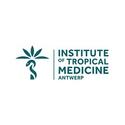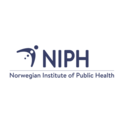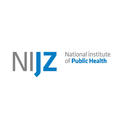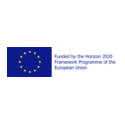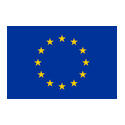Monitoring the evolution and impact of infectious diseases
Our service develops effective tools for the collection of information which are used to assess the scale and impact of infectious diseases on public health.
Flu, Lyme’s disease, measles, legionellosis (Legionnaire’s disease) and HIV are only a few of the infectious diseases of which we monitor the evolution within the population.
By describing the trends and identifying changes, we can make appropriate recommendations to the health authorities regarding the implementation of measures to combat and prevent these diseases.
Want to know more?
We describe and monitor the evolution of the epidemiology of infectious diseases using the information collected from various sources, including networks of GPs, hospitals and microbiologists. Once interpreted, we can use these data to assess the impact of such diseases on public health in terms of, for example, incidence or mortality. Using them, we are also able to determine the effect of preventive measures, such as vaccination, or of aggravating factors, such as age, extreme temperatures, etc.
The knowledge obtained about the infectious diseases allows the health authorities to take scientifically based decisions in, for example, the area of prevention. We also provide them with support in the event of a health emergency or a crisis not only at the local but also at the regional, national and international level.
At the federal level, we work very closely with FPS Public Health and NIHDI (INAMI-RIZIV). We also work with the Brussels-Capital Region, Walloon Region (l’Agence pour une Vie de Qualité, AVIQ) and the Flemish Community. All of our activities take place in a European context and we work closely with the European Centre for Disease Prevention and Control (ECDC).
Information sources selected for you
Other websites selected for you
Our scientists
View all scientistsOur scientists
-
Name: Finaba Berete
-
Name: Nathalie Bossuyt
-
Name: Toon Braeye
-
Name: Ruben Brondeel
-
Name: Claire Brugerolles
-
Name: Natalia Bustos Sierra
-
Name: Eveline Cleynen
-
Name: Laura Cornelissen
-
Name: Simon Couvreur
-
Name: Cato Dambre
-
Name: Laurane De Mot
-
Name: Géraldine De Muylder
-
Name: Maarten De Rouck
-
Name: Yinthe Dockx
-
Name: Reindert Ekelson
-
Name: Sébastien Fierens
-
Name: Laurence Geebelen
-
Name: Kimberley Hansford
-
Name: Pierre Hubin
-
Name: Veronik Hutse
-
Name: Stéphanie Jacquinet
-
Name: Raphael Janssens
-
Name: Hans Jonker
-
Name: Yves Lafort
-
Name: Valeska Laisnez
-
Name: Amaryl Lecompte
-
Name: Tinne Lernout
-
Name: Marie Lesenfants
-
Name: Amber Litzroth
-
Name: Hadrien Maloux
-
Name: Clara Mazagatos Ateca
-
Name: Anke Meyers
-
Name: Marion Montourcy
-
Name: Sarah Moreels
-
Name: Laure Mortgat
-
Name: Peace Mpakaniye
-
Name: Mélanie Nahimana
-
Name: Léonore Nasiadka
-
Name: Serge Nganda
-
Name: Ilse Peeters
-
Name: Javiera Rebolledo Romero
-
Name: Raphaël Rousseau
-
Name: Jorgen Stassijns
-
Name: Giulietta Stefani
-
Name: Dominique Van Beckhoven
-
Name: Dieter Van Cauteren
-
Name: Amber Van Laer
-
Name: Joris Van Loenhout
-
Name: Mathil Vandromme
-
Name: Heleen Vermandere



























